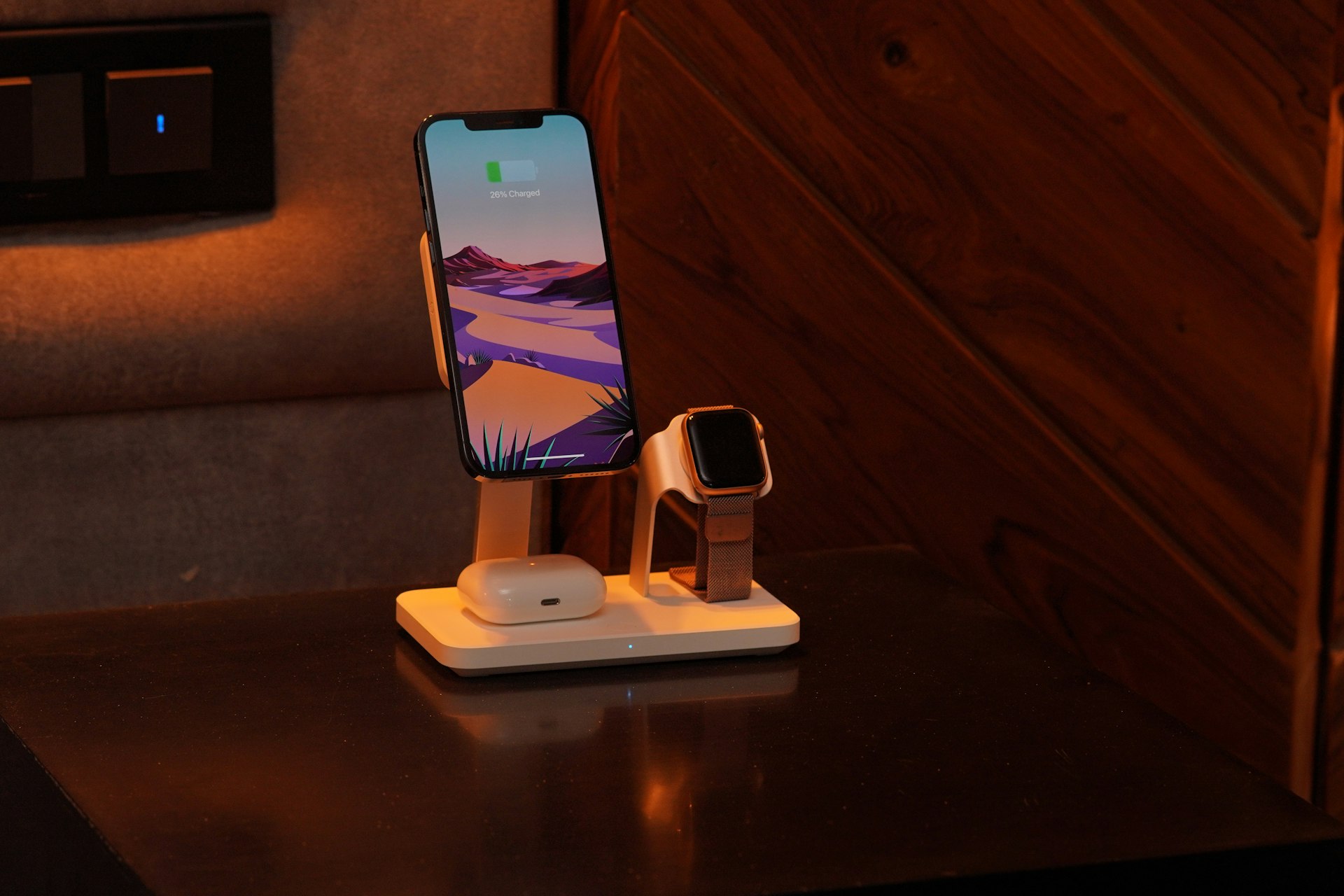2025 Longevity and Anti-Aging Research: Innovations Shaping a Healthier Future

Photo by Towfiqu barbhuiya on Unsplash
Introduction
Advances in longevity and anti-aging research are rapidly transforming how we approach health, vitality, and the aging process. In 2025, a convergence of biotechnology, personalized medicine, artificial intelligence, and holistic wellness is reshaping opportunities for people seeking to extend their healthy years. This article explores the latest trends, scientific breakthroughs, and actionable strategies in the field, with practical guidance for accessing these innovations and optimizing your well-being.
Personalized Approaches: Medicine and Wellness Tailored to You
Personalized medicine is at the heart of 2025’s anti-aging movement. Instead of generic recommendations, clinicians and wellness providers are increasingly using genetic testing , microbiome analysis , and epigenetic profiling to create individualized health plans. These assessments can help predict risk factors for age-related diseases, guide preventative strategies, and inform lifestyle changes for improved longevity. For example, analyzing your genetic markers may reveal a predisposition to cardiovascular disease, allowing for earlier interventions and customized nutrition or exercise plans [1] .
How to Access: You can request genetic and microbiome testing through many healthcare providers or specialized laboratories. To find reputable options, consult your primary care physician or search for certified genetic counseling services in your region. Always ensure the lab follows established privacy and data security standards.
Challenges may include cost and privacy concerns. Some insurance plans may cover testing if medically indicated, but coverage varies. If affordability is an issue, consider seeking out academic medical centers or clinical trials, which sometimes offer free or reduced-cost testing as part of research studies.
Breakthroughs in Biotech: Cellular Rejuvenation and Epigenetic Reprogramming
One of the most exciting developments in anti-aging research involves targeting the biological mechanisms underlying aging itself. Epigenetic reprogramming -using techniques to “reset” cellular aging markers-has moved from theoretical science to the forefront of biotech innovation. By harnessing so-called “Yamanaka factors,” researchers can transform mature cells back to a more youthful state in the lab. This approach aims to rejuvenate tissues and potentially reverse age-related decline [5] .
Companies like
Turn Biotechnologies
are developing mRNA medicines that instruct the body to repair itself, while others explore mitochondrial transplantation and vaccines targeting aging pathways
[3]
. Many of these therapies are still in clinical trials, but they offer hope for transformative advances in the coming years.
How to Access: If you are interested in participating in clinical trials for anti-aging therapies, start by searching the U.S. National Institutes of Health’s ClinicalTrials.gov database or consult with major academic medical centers that specialize in aging research. Participation criteria are specific and may include age, health status, and geographic location.
Alternative options for supporting cellular health include evidence-based lifestyle choices-such as regular exercise, a balanced diet, and stress management-which remain foundational while novel therapies are in development.
The Rise of AI and Digital Health for Longevity
Artificial intelligence is revolutionizing how we monitor and support healthy aging. Smart devices, wearables, and AI-powered apps now track physiological metrics in real time, providing personalized feedback on sleep, activity, nutrition, and stress. These technologies can help optimize your daily routines for maximum longevity benefit by analyzing your unique data and suggesting actionable changes [2] .
Practical Steps: To start leveraging these tools, consider investing in a reputable wearable device that monitors sleep, heart rate, and activity. Popular platforms like Apple Health and Fitbit offer integrated dashboards and health insights. For more advanced analysis, some companies partner with healthcare providers to create personalized longevity plans based on wearable data.
Be sure to verify that any app or device you use is approved by relevant regulatory authorities, especially for medical-grade health tracking. When in doubt, consult with your healthcare provider for recommendations.

Photo by Natalia Trofimova on Unsplash
Holistic and Lifestyle Medicine: Prevention and Resilience
Modern longevity research emphasizes not just extending lifespan, but also healthspan -the years we live free from chronic disease and disability. In 2025, lifestyle medicine is recognized as a cornerstone of both prevention and long-term wellbeing. This approach integrates proven strategies such as:
- Optimized Circadian Health: Aligning your daily routine with your body’s natural rhythms can positively impact metabolism, inflammation, and hormonal balance. Techniques include maintaining consistent sleep schedules, reducing evening screen time, and using light therapy to adjust your internal clock [2] .
- Personalized Nutrition: A shift toward plant-based, nutrient-dense foods is underway, reflecting evidence that diets rich in fruits, vegetables, whole grains, and healthy fats support longevity. AI and genomics now enable tailored nutrition plans based on your individual biology [4] .
- Movement-Based Neurotherapy: Physical activity remains a key pillar. Emerging evidence supports combining traditional exercise with practices that challenge balance, coordination, and cognition to maintain both brain and body health as we age.
How to Implement: Begin by assessing your current lifestyle and identifying areas for improvement. Many healthcare providers now offer lifestyle medicine consultations. If these are unavailable, you can independently adopt key practices by researching reputable health organizations or seeking certified nutritionists and sleep specialists. For plant-based diets, explore resources from the Academy of Nutrition and Dietetics or the American Heart Association.
Potential barriers include time constraints and information overload. Overcome these challenges by setting realistic goals, tracking progress with digital tools, and enlisting social support from friends or wellness groups.
Advanced Skincare and Non-Invasive Technologies
Skincare science is advancing rapidly, with a focus on both efficacy and safety. Nanotechnology allows for the deeper delivery of active ingredients, while stem cell-derived growth factors help stimulate collagen production and repair skin damage. Smart skincare devices, powered by AI, can assess your skin condition and recommend personalized regimens, increasing both effectiveness and convenience [1] .
How to Get Started: Many dermatology clinics now offer consultations that integrate these advanced technologies. To choose reputable products, look for those with clinical trial data published in peer-reviewed medical journals. Always verify claims by reviewing research or consulting your dermatologist before starting new treatments.
As an alternative, basic sun protection and regular use of moisturizers containing retinoids, antioxidants, and peptides remain the foundation of effective anti-aging skincare.
Accessing the Latest Therapies and Resources
With so many emerging options, it can be challenging to navigate the landscape of longevity and anti-aging services. Here are detailed strategies to help you take advantage of these trends:
- Talk to Your Healthcare Provider: Ask about the availability of personalized medicine, genetic testing, and lifestyle medicine programs. Many clinics are expanding their services to include these options.
- Research Clinical Trials: Visit the official ClinicalTrials.gov database to find ongoing studies for anti-aging and longevity therapies. Participation may offer access to the latest interventions and expert care.
- Leverage Digital Health Tools: Explore reputable health and wellness apps with positive user reviews and transparent privacy policies. Always consult official app stores or the manufacturer’s website for updates and features.
- Connect With Reputable Organizations: For comprehensive information, consult established organizations such as the Global Wellness Institute, the American Federation for Aging Research, and the Academy of Nutrition and Dietetics. Use their official websites for the latest guidelines, news, and educational resources.
Remember, no single therapy or trend is a panacea. The best approach combines evidence-based medicine, healthy lifestyle practices, and regular consultation with qualified professionals.
Key Takeaways
In 2025, longevity and anti-aging research is defined by a shift toward proactive, personalized, and technology-enabled care. By staying informed and working closely with trusted healthcare professionals, you can access emerging therapies and make informed choices that support your long-term health and wellbeing.
References
- [1] Advanced Wellness (2025). Anti-Aging Trends in 2025: Embracing Innovation for Youthful Vitality.
- [2] A4M (2025). 2025 Top Wellness Trends: Longevity, Medicine, and Technology.
- [3] Longevity Technology (2025). 6 Trends Reshaping Human Health & Aging.
- [4] INNOCOS (2025). Top Wellness and Longevity Trends for 2025.
- [5] Labiotech (2025). 13 Anti-Aging Biotech Companies Leading Longevity in 2025.



